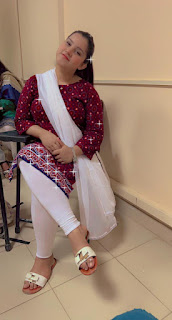The Aurat March Debate: Should It Be Held or Not?
The Aurat March, which translates to "Women's March," is an annual event that takes place in various cities in Pakistan. It is a demonstration of solidarity among women and their allies, who come together to demand an end to gender-based violence, inequality, and discrimination. However, the event has also faced backlash from conservative groups who argue that it goes against traditional values and morals. In this article, we will explore the arguments for and against holding the Aurat March.
One
of the main issues that the Aurat March addresses is the prevalence of violence
against women. Pakistan has a high incidence of gender-based violence,
including domestic violence, sexual harassment, acid attacks, and honor
killings. According to a report by the Human Rights Commission of Pakistan,
there were 2,297 cases of violence against women reported in the first ten
months of 2021 alone. The Aurat March brings attention to these issues and puts
pressure on the government to take action to address them.
One
of the primary arguments against the Aurat March is that it promotes
westernization and goes against traditional values. Some conservative groups
view the march as a platform for women to express themselves in ways that are
deemed inappropriate or immoral. For example, some banners and slogans used in
previous marches have been criticized for being vulgar and disrespectful to
cultural norms. Opponents of the march argue that it encourages women to be
rebellious and reject their roles as wives and mothers.
Another
argument against the Aurat March is that it divides society and creates
conflict. Some critics argue that the event only represents a small group of
women who hold extreme views, while the majority of women in Pakistan do not
support the march. Additionally, some have accused the organizers of being too
radical and pushing a feminist agenda that is not reflective of the realities
of Pakistani society. There is a concern that the Aurat March could further
polarize society and undermine the efforts to promote unity and harmony.
Despite
the criticisms leveled against it, the Aurat March has gained significant
support from women's rights activists and human rights organizations. One of
the main arguments in favor of the march is that it provides a platform for
women to speak out against gender-based violence and discrimination. Pakistan
has a high rate of gender-based violence, including honor killings, domestic
violence, and sexual harassment. The Aurat March aims to raise awareness of
these issues and demand action from the government and other stakeholders.
Another
argument in favor of the Aurat March is that it empowers women to take control
of their lives and demand their rights. The march is an opportunity for women
to come together and show solidarity with one another, regardless of their
backgrounds or social status. It promotes a message of inclusivity and
diversity, which is crucial in a society where women from marginalized communities
often face additional barriers to equality.
Finally,
supporters of the Aurat March argue that it is a peaceful and lawful
demonstration of the right to freedom of expression and assembly. The
organizers have emphasized that the event is not intended to promote any
particular ideology or agenda, but rather to raise awareness of issues
affecting women. They have also taken steps to ensure that the event is safe
and accessible to all participants, including by providing security and medical
assistance.
In
conclusion, the Aurat March debate highlights the tension between traditional
values and modern ideals of equality and empowerment. While some argue that the
event goes against cultural norms and promotes a radical agenda, others view it
as a necessary step towards achieving gender equality and justice. Ultimately,
the decision to hold the Aurat March should be based on a careful consideration
of the risks and benefits, as well as the rights of all individuals to express
their views and beliefs.


Comments
Post a Comment